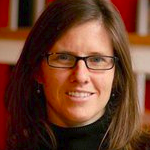Would you enjoy reprogramming lab bacteria with DNA from a jellyfish to make them glow green? How about hacking your own genetic data to find out what percentage of the Neanderthal genome you share? Or building a device that splits water into oxygen and hydrogen?
If so, maybe you should consider joining the DIY garage biology movement.
Educational institutions, governments, and big businesses dominate biological research. But plummeting technology costs let entrepreneurs and hobbyists design do-it-yourself tools for biological engineering at a fraction of previous prices.
Aspiring biologists can also get access to lab equipment outside university and government labs. Neighborhood labs are open to everyone and can bring together communities of like-minded citizen scientists. Like community tech shops (where one might share the use of large and expensive technology used in metal machining or wood work), these new science spaces are popping up more frequently.
If you’re curious about biology, you can join a newly formed organization called BioCurious in California’s Bay Area. BioCurious, started as an online community, recently opened a new biotech hackerspace and community lab where those interested can come together to learn and share ideas. Anyone can become a member.
Members take classes, meet other biohackers, and explore biology. BioCurious’ new lab space contains much of the same equipment you might find in professional labs: Polymerase chain reaction (or PCR) machines, microcentrifuges, gel electrophoresis equipment, incubators, microscopes, and industrial fridges and freezers. Some pieces were donated, others bought at auction. (BioCurious managed to raise more than $35,000 via Kickstarter last year.) Key members have research experience and the founders recruit guests speakers from organizations like Backyard Brains and DIYbio.org.
If you live in New York, you can join Genspace, the city’s community biolab that opened doors in December 2010. According to their web page, “Genspace was founded by a group of science enthusiasts who come from different professions--artists, engineers, writers and biologists. Unlike traditional institutions, our diversity is our strength and the source of our innovation.”
Wired magazine profiled the lab when they opened last year:
“The small space is made of found parts. A sliding patio door, Plexiglas panels and old wire screens enclose the lab, and stainless-steel restaurant tables serve as lab benches. The lab's glassware, micropipettes, centrifuges, electrophoresis machines, incubators, microscopes and other scientific equipment were donated. Genspace president and co-founder Ellen Jorgensen, a biomedical researcher at New York Medical College, used to work for Vector Research and got the company to donate the gear after it shut down a facility.”
These non-profit community labs are a collaborative, open source approach to developing new ideas in biotech. As Singularity Hub reported, “There’s only so much you can do with a PCR machine–there’s much more you can accomplish with thousands of people curious enough to learn how to make their own PCR machine.”
Visit the BioCurious homepage
https://biocurious.org/
Visit the Genspace homepage
https://www.genspace.org/






7 Comments